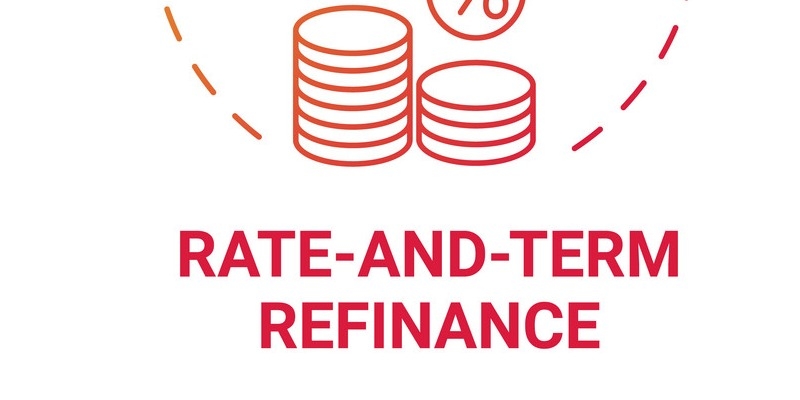Advertisement
FHA loans have become a popular choice for many homebuyers, especially those who may not have a substantial down payment or who may struggle to qualify for conventional loa ns.
ns.
In this guide, we will delve into the essential aspects of FHA loans, covering everything from requirements and benefits to the loan process. Whether you are a first-time homebuyer or looking to refinance, understanding FHA loans can provide you with valuable insights to make informed financial decisions.
FHA loans, or Federal Housing Administration loans, are government-backed mortgages designed to help borrowers with lower incomes or less-than-perfect credit qualify for home financing. Established in 1934, the FHA aims to promote homeownership, especially among those who might find it challenging to obtain traditional loans.
The unique aspect of FHA loans is that they are insured by the FHA, which reduces the lender's risk. This insurance enables lenders to offer more lenient terms, making homeownership accessible to a broader range of people.
One of the most significant advantages of FHA loans is the lower down payment requirement. Unlike conventional loans that often require a 20% down payment, FHA loans allow buyers to put down as little as 3.5% of the purchase price. This lower threshold can make a substantial difference for many first-time homebuyers who may not have significant savings.

Another benefit is the flexibility in credit score requirements. While conventional loans typically require a credit score of 620 or higher, FHA loans can be obtained with scores as low as 580 and even lower in some cases with a higher down payment. This makes FHA loans an attractive option for individuals who may have experienced financial difficulties in the past but are now in a position to buy a home.
FHA loans also come with competitive interest rates. Because these loans are backed by the government, lenders are often more willing to offer lower rates, saving borrowers money over the life of the loan. Additionally, FHA loans have no prepayment penalties, meaning homeowners can refinance or pay off their loans early without incurring additional fees.
While FHA loans offer numerous benefits, there are specific requirements that borrowers must meet. The first requirement is that the property being purchased must be the borrower's primary residence. FHA loans are not available for investment properties or vacation homes.
To qualify for an FHA loan, borrowers must provide proof of steady income and employment history. Generally, lenders prefer borrowers to have a minimum of two years of consistent work history. Additionally, borrowers must demonstrate their ability to repay the loan, usually through a debt-to-income (DTI) ratio of no more than 43%. This means that no more than 43% of a borrower's gross monthly income can go toward housing-related expenses, including mortgage payments, property taxes, and insurance.
Another important requirement is the mortgage insurance premium (MIP). Borrowers must pay MIP for the duration of their loan, which can be a significant added cost. The MIP is generally calculated as a percentage of the loan amount and can be paid upfront at closing or rolled into monthly payments.
Understanding the FHA loan process can help borrowers navigate their home financing journey more smoothly. The first step is to find an FHA-approved lender. It is essential to shop around and compare different lenders to find the best interest rates and terms. Once a lender is chosen, the borrower will need to complete a mortgage application and provide the necessary documentation, including income verification, tax returns, and credit history.
After submitting the application, the lender will begin the underwriting process, where they will assess the borrower's creditworthiness and the property's value. A home appraisal is typically required to ensure the property meets FHA standards and is valued appropriately. If the loan is approved, the borrower will receive a loan estimate detailing the loan amount, interest rate, and closing costs.
Once all parties are satisfied with the terms, a closing date is set. During closing, the borrower will sign all necessary documents and pay any closing costs. After this step, the loan is funded, and the borrower officially becomes a homeowner.
For homeowners already with an FHA loan, refinancing can be an excellent option. The FHA offers a streamlined refinancing process, which simplifies the steps and requirements for borrowers. This can be especially beneficial for those looking to lower their monthly payments or take advantage of lower interest rates.

To qualify for an FHA streamlined refinance, borrowers typically do not need to provide income documentation or undergo a credit check. However, they must demonstrate that they have made timely payments on their current FHA loan for the last 12 months. This streamlined process can save time and money, making it a popular choice among current FHA loan holders.
FHA loans offer numerous advantages for homebuyers, particularly those who may not have substantial savings or perfect credit. With lower down payment requirements, flexible credit standards, and competitive interest rates, they can be an excellent option for first-time buyers and those looking to refinance. However, understanding the requirements and the loan process is crucial for success.
If you are considering an FHA loan, it is essential to work with a knowledgeable lender who can guide you through the process and help you make informed decisions. By arming yourself with the right information, you can take a significant step toward achieving your homeownership dreams.
FHA loans are more than just a financial product; they represent a pathway to homeownership for many people. Whether you are a first-time buyer or looking to refinance, knowing everything there is to know about FHA loans will empower you to make the best choices for your financial future.
Advertisement

By Elena Davis/Oct 14, 2024

By Tessa Rodriguez/Dec 16, 2024

By Verna Wesley/Apr 02, 2025

By Elva Flynn/Oct 09, 2024

By Triston Martin/Mar 17, 2025

By Sean William/Dec 18, 2024

By Noa Ensign/Feb 19, 2025

By Paula Miller/Dec 18, 2024

By Celia Shatzman/Feb 07, 2025

By Gabrielle Bennett /Mar 16, 2025

By Celia Kreitner/Jan 04, 2025

By Madison Evans/Dec 06, 2024